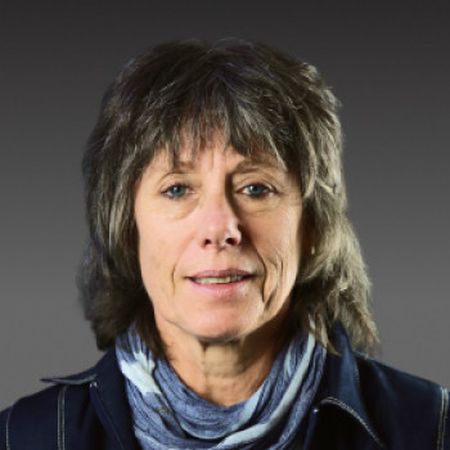One of the persistent questions asked of me by young white learners when I am giving talks at schools in the Western Cape is how to unpack who they are as South Africans.
Parents are often to blame for the silence in respect of where this minority fits into the greater landscape of South Africa and its history, and how we got here. Besides, the shame and guilt attached to the apartheid years have resulted in a silence akin to that which blanketed post-war German families, like my own.
In that country, defeated civilians had to start from ground zero, from their self-created ruin of a country, to understand what chord facism and cruelty had struck so totally.
Today, modern Germans are highly sensitive to the culpability of past generations.
White children in this country are seeking tools to understand their identities, but mention the word “race” and the shutters often come down, followed by a brouhaha of some sort.
Different door
Into my lap fell educator Professor Neil Roos’s Ordinary Whites in Apartheid Society: Social Histories of Accommodation (Wits University Press), which opens a different door to understanding how whites have been socialised as a group over time.
Sociologist Professor Crain Soudien, chief executive of the Human Sciences Research Council and formerly a deputy vice-chancellor at the University of Cape Town, has written an insightful foreword to Roos’s extensive study of the bottom-up construction of white South African identity.
Soudien points out that what is important to note is that our social differences are not “natural”.
“We acquire them through processes of socialisation.”
Roos, whose origins are working class, predominantly English-speaking Durban during the apartheid years, has written, says Soudien, “a deeply important attempt to explain how ‘white’ South Africans learn racial identity”.
Roos, dean of the Faculty of Social Sciences and Humanities at the University of Fort Hare, has explained that in the few historical or literary accounts of white people in apartheid society, he was unable to find “people like me, my family or those I grew up with”.
Tones of “nostalgia and apologia” that began to appear in some genres of whites writing on apartheid, mainly memoirs, had needed challenging.
For young white people growing up during the ’60s, ’70s and ’80s, notes Roos, “apartheid was everywhere, yet it was nowhere”.
Read more: Spatial apartheid documentary tackles dire housing crisis in Mother City
“Its basic premise of racial supremacy and racial segregation (was) taken for granted but seldom explicitly discussed,” he writes.
It is worth quoting Soudien at greater length on Roos’s work.
“White people have, within their cognitive and affective capacities, like all other human beings anywhere in the world, the full spectrum of human strengths and weaknesses. They are not special, in spite of what white supremacists would have us believe.
“There is, moreover, no model white person, just as there is no such thing as a typical or representative white person. And yet, at the same time, what Roos shows so insightfully is that white people are also never free to be that which they please.”
A class project
Roos focuses in particular on the unequal power relations between “non-elite” whites and the elites of successive governments – from the Union in 1910 to the years of grand apartheid – which kept this potential underclass under control and beholden to increasing privilege. This was a class project born of the mind of influential nationalist thinkers like sociologist Geoffrey Cronjé (1907-1992), who features in the book.
Cronjé nurtured and promoted the idea, among Afrikaans speakers in particular, of a “people born of noble suffering, entrusted by God to clear a path for European civilisation on the benighted continent”.
This was done through white economic empowerment, as a large contingent of poor whites, many of them Afrikaners and many from rural areas, were absorbed into government machinery at all levels. Roos explores the nuts and bolts of this bureaucratic monster as it cranked to life.
The absorption of “non-elite” whites in the civil service was accompanied by “a racial ideology that instilled into white people the belief that their access to the privileges of whiteness – such as superior and separate educational, health, and job affordances – was entirely justified by the natural superiority over all other races”.
This co-option and the economic prosperity that followed cushioned and blinded this community morally to the realities faced by the disenfranchised black majority.
Those whites who had fallen on hard times or who were addicted to alcohol were dispatched by the state to work camps and engaged in projects that would “instil” the “values” of this authoritarian white society.
Exceptions
There were, of course, many whites who are well known in South Africa’s recent history who resisted apartheid.
They include famous Struggle stalwarts like Ruth First, Joe Slovo, Bram Fischer, Beyers Naudé, Rusty Bernstein, Ben and Mary Turok, Albie Sachs, Rick Turner, Terry and Barbara Bell, Ronnie and Eleanor Kasrils, David Webster, Sheena Duncan, Helen Joseph and Donald Woods (the list is long), who directly challenged the dominant hegemony, often at great cost.
“Narratives about white people tended to lump them together into singular and interchangeable subjects, lacking any complexity or difference,” writes Roos.
This work explores the myths and the practice, and although Roos is an academic, the research-dense text is held together by stories and anecdotes of people. It is a fascinating read. DM
This story first appeared in our weekly Daily Maverick 168 newspaper, which is available countrywide for R35.
Daily Maverick’s journalism is funded by the contributions of our Maverick Insider members. If you appreciate our work, then join our membership community. Defending Democracy is an everyday effort. Be part of it. Become a Maverick Insider.





